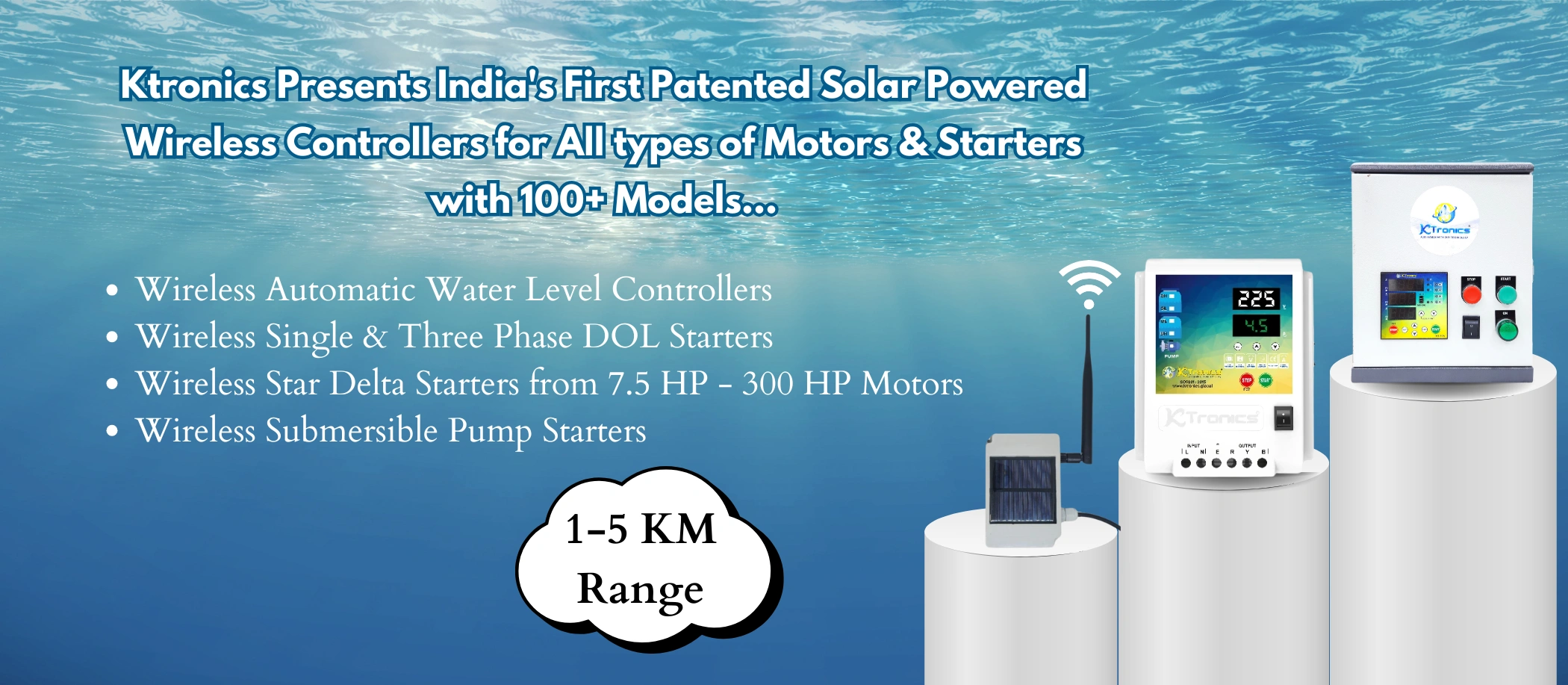
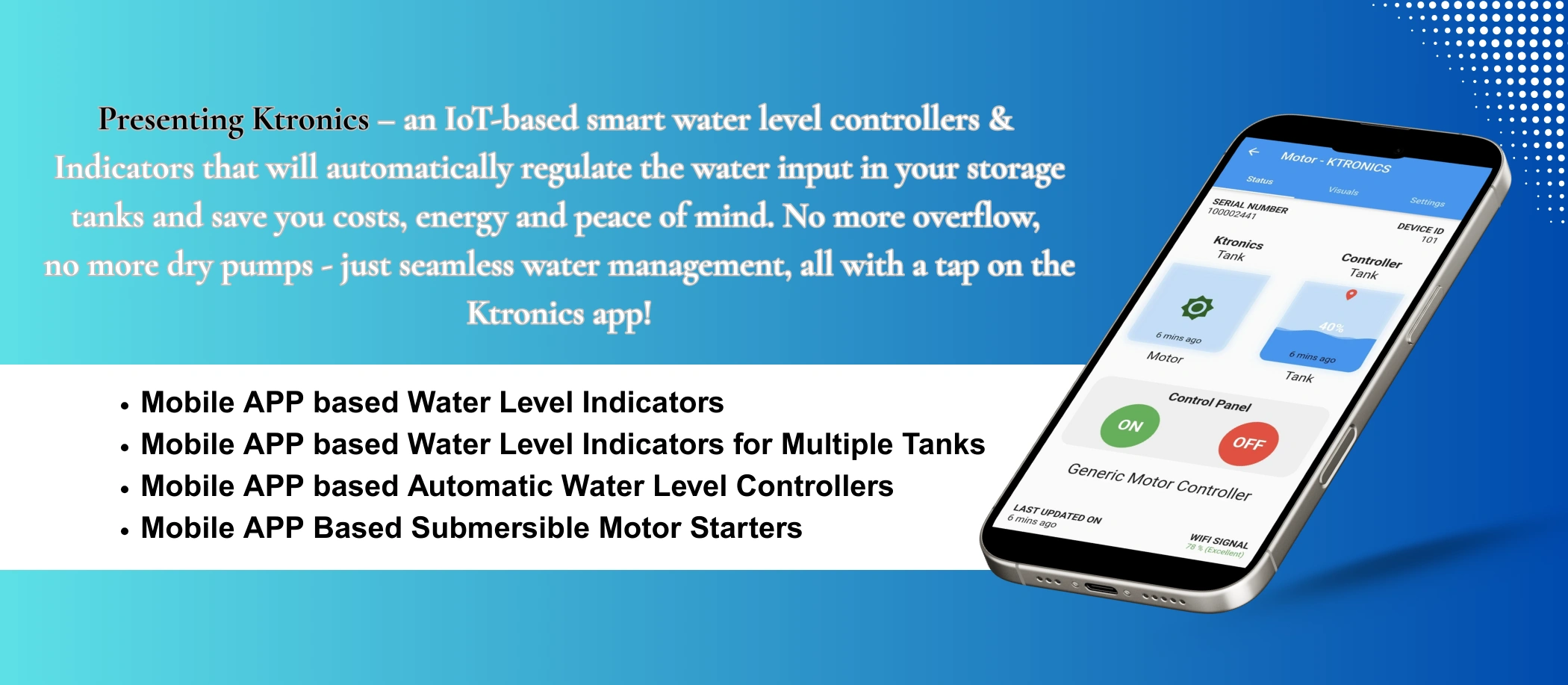
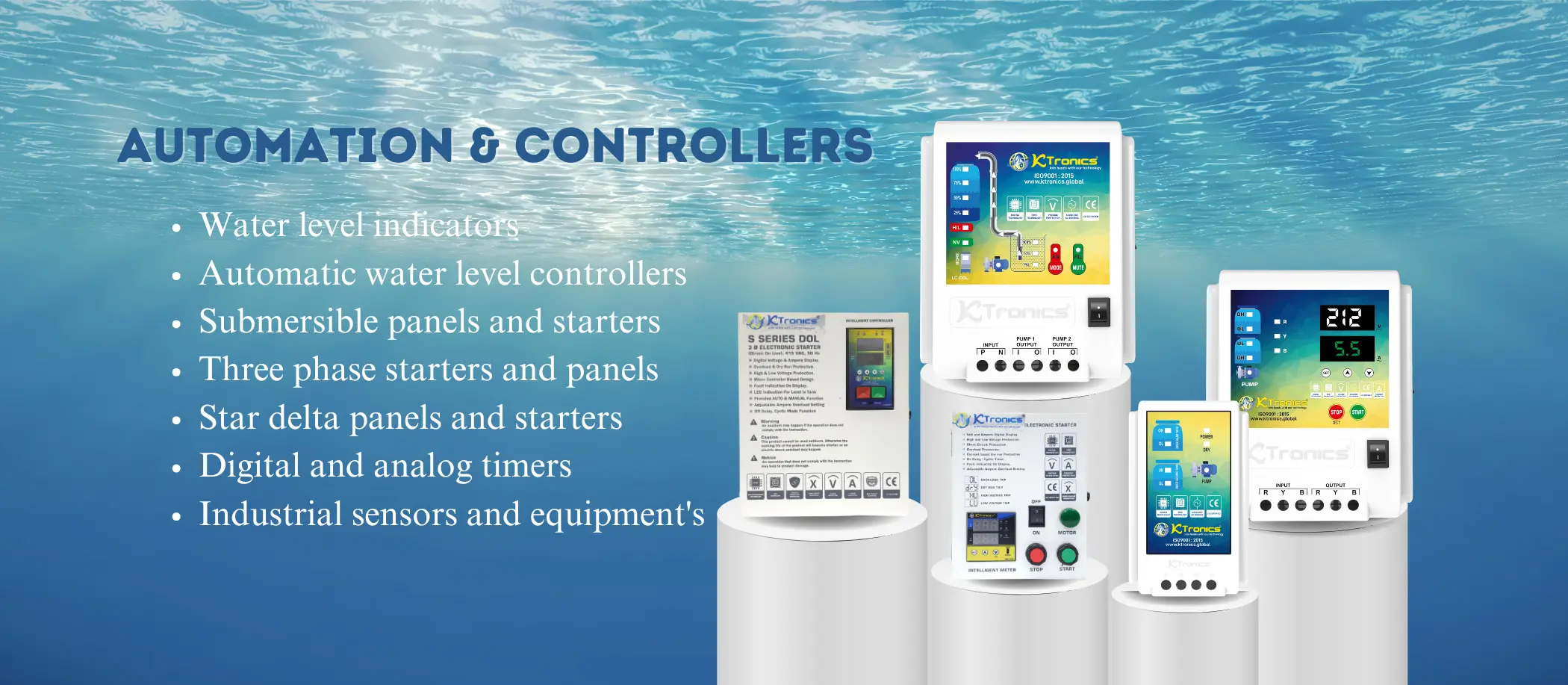
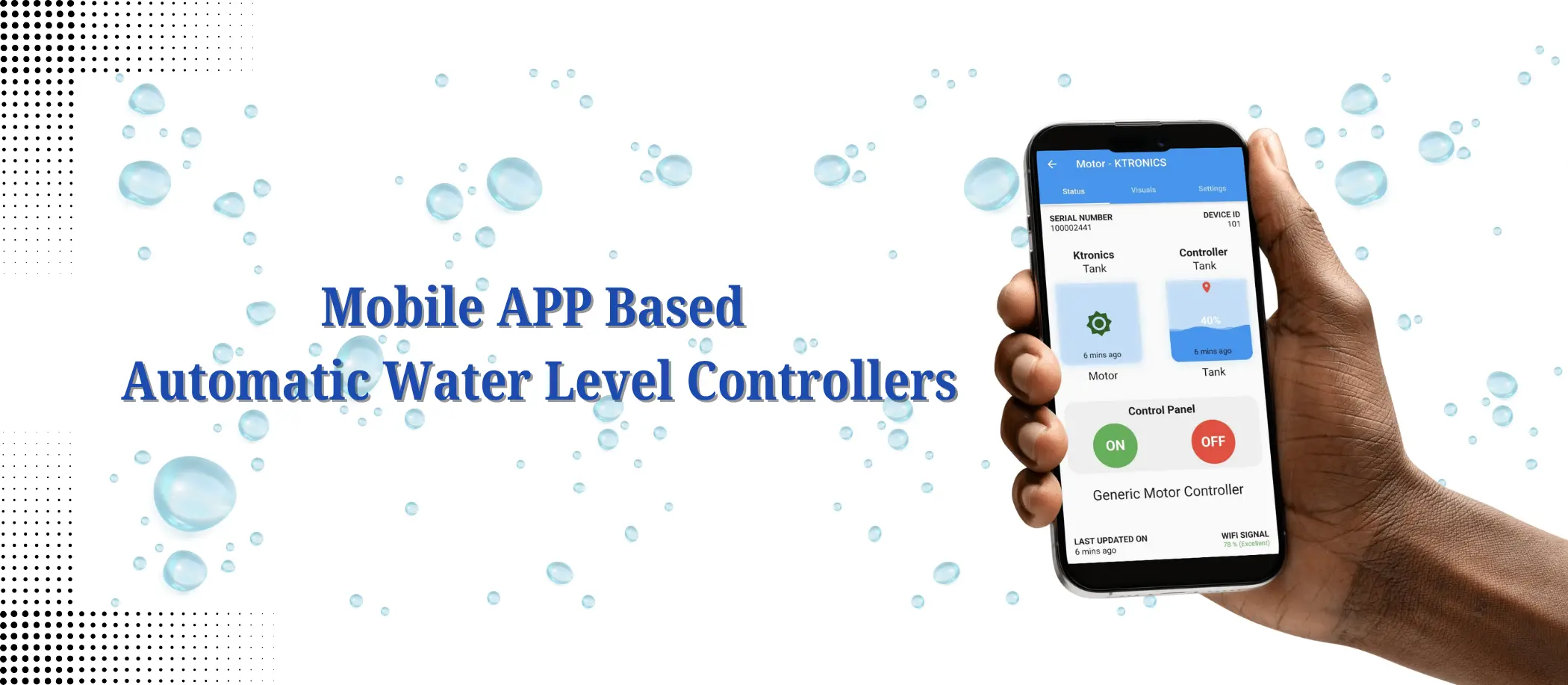
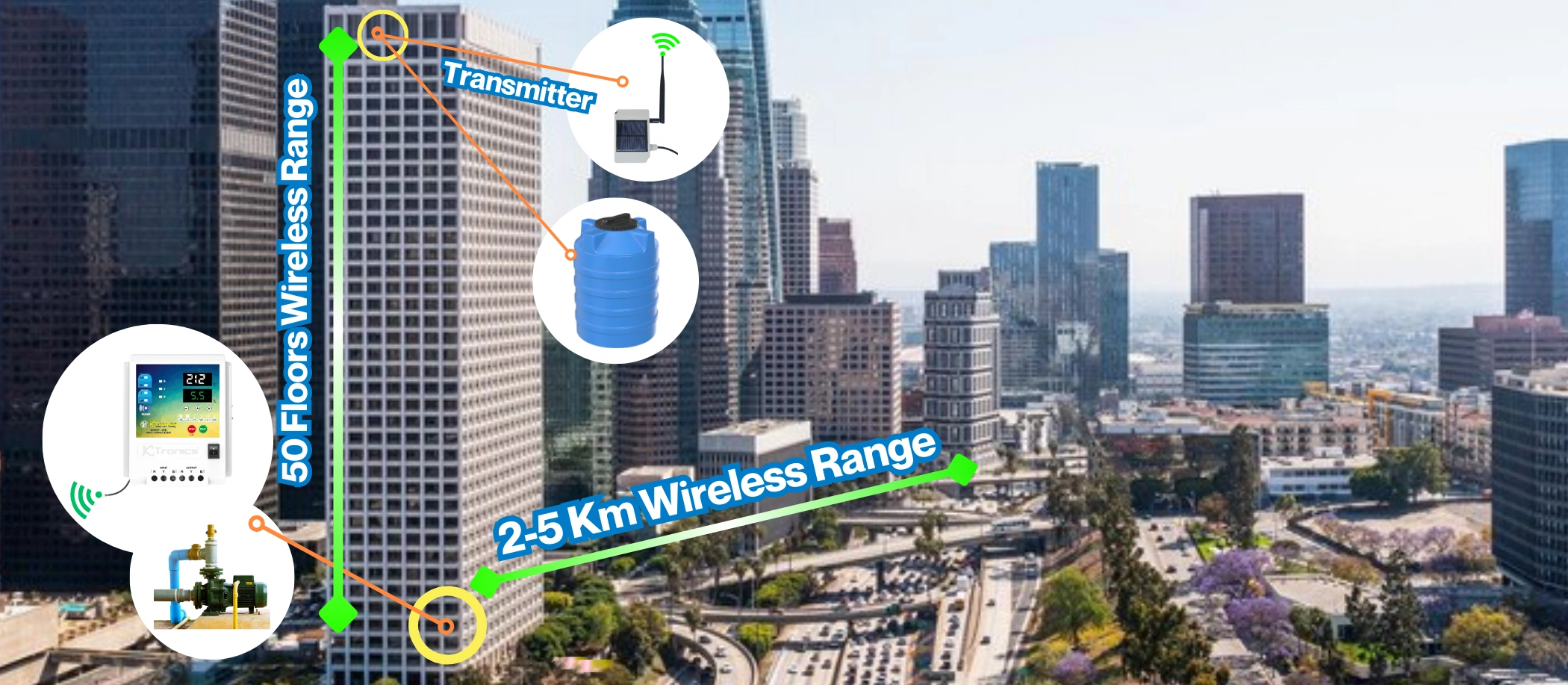
Assured Products
Ktronics: Pioneering Water Management Solutions
Ktronics boasts India’s largest manufacturing facility devoted to creative water management products. Our comprehensive product portfolio contains over 150 models such as Smart Motor Starters, Wireless Water Level Controllers, Single & Three Phase Preventors, Water Level Indicators, Automatic Water Level Controllers, Analog and Digital Timers, and more.
It contains a wide range of applications, so people use these advanced solutions designed in hotels, apartments, residential homes, villas, schools, colleges, hospitals, farmers, and construction sites.
Ktronics is dedicated to providing high-quality products and services to major cities in India, including Chennai, Hyderabad, Bengaluru, and beyond. Additionally, we export our products globally, guaranteeing efficient water management solutions worldwide.
At Ktronics, we fathom that each client has unique necessities. Based on that, we present customized solutions bespoke to meet specific needs, confirming optimal performance and satisfaction.
If you need additional customization or more details, feel free to ask!
Versatility
Our products are suitable for a broad spectrum of uses, including industrial and domestic.
Quality Control
Every product is put through a thorough testing process to make sure it performs and lasts long.
Energy Efficiency
Our solutions are to use resources as efficiently as possible. It reduces your energy expenses.
Professional Assistance
Our group of experts is constantly available to help you with setup, upkeep, and diagnosis.
Customization
We provide specialized solutions to satisfy your unique needs
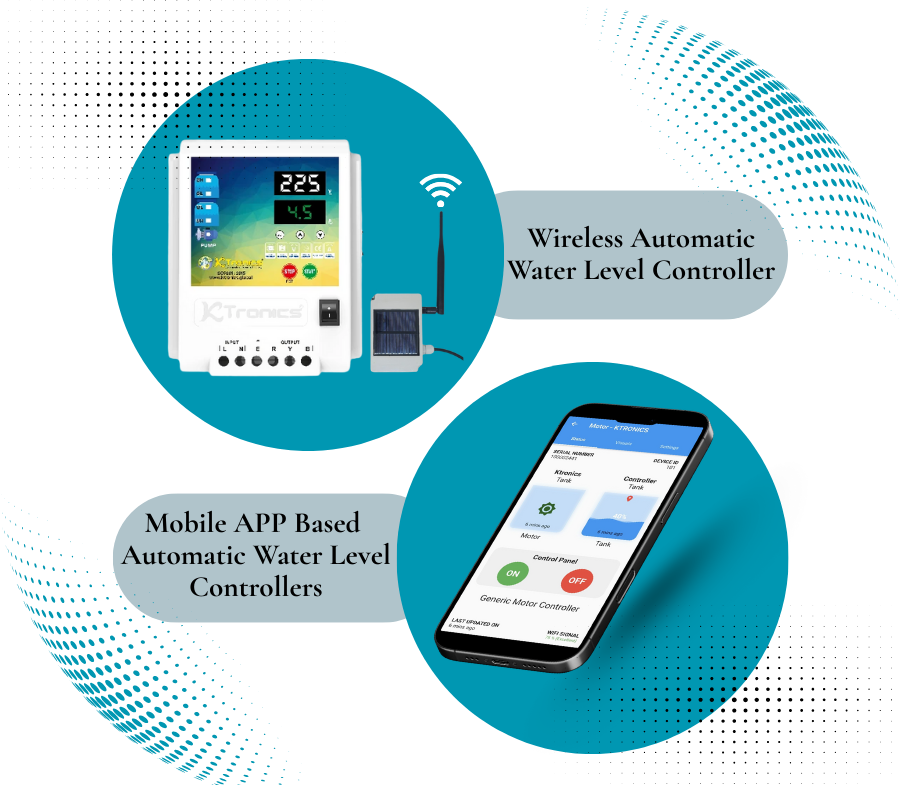
ABOUT US
Automatic Water Level Controller
Innovating for a Smarter Tomorrow
At Ktronics, we are pioneers in wireless and smart mobile app systems, proudly presenting over 150 advanced models. In today’s era of hyper-connectivity, we harness cutting-edge technology to enrich efficiency in daily life and business operations, paving the way for a presentable future.
Ktronics’ mission is to seamlessly integrate advanced technology with practical solutions through top engineers and tech enthusiasts. We stand as a covenant to smarter water management. It delivers automated systems that stem overflows and dry runs, ensuring optimal water usage.
With two decades of experience, we have successfully executed numerous projects globally, hardening our commitment to innovation and eminence.
Efficient Team
Explore Ktronics Products
Global Innovations in Smart Technology
Water-Level Indicator
Quickly stay aware of your water levels with the support of water level indicators. We offer precise, real-time data from our precision indicators to help you manage your resources more effectively in the locations of Tamilnadu and Hyderabad.
Why Choose Us?
Our dedication to reliability, creativity, and customer satisfaction leads us to continuously improve our products so they can satisfy the changing demands of our wide range of customers.
2L+
Happy Clients
1M+
Device Sold
100+
Branches
150
Dealers & Distributors
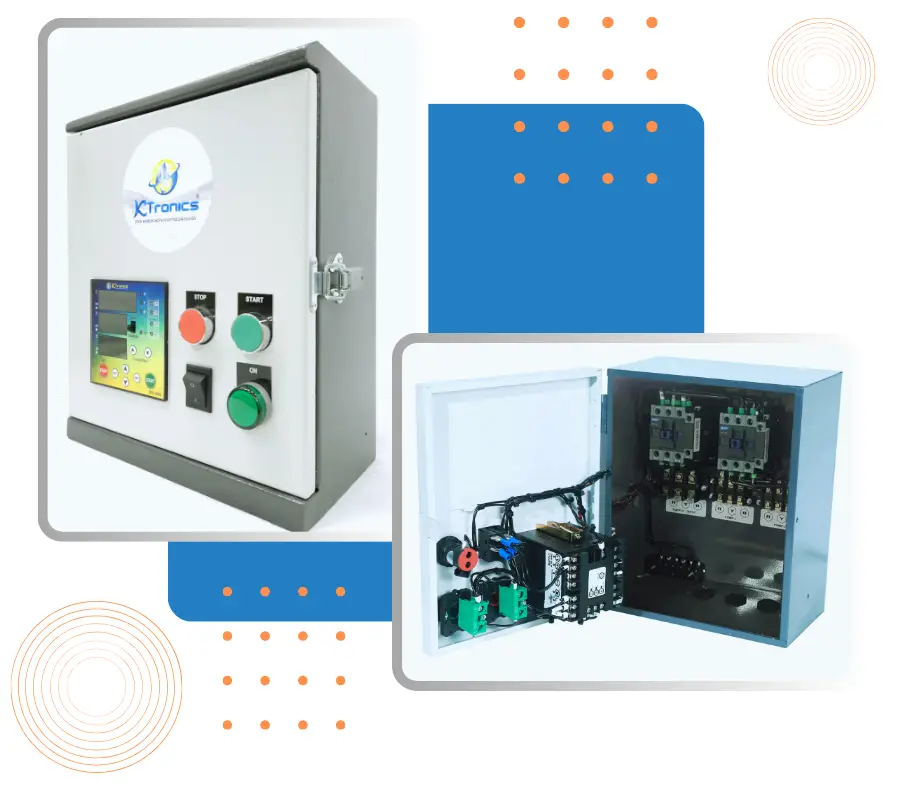
Who We Are
Ktronics Global provides the ideal solution to maximize water use and improve operational efficiency, no matter the size of the building you oversee a vast manufacturing company or a tiny apartment building can choose our product water level controller.
FAQs
An automated water level controller is a device that automatically turns on or off the water pump and helps the desired water level in a tank or reservoir.
Phase prevention ensures that electrical equipment operates smoothly and continuously by guarding against phase loss or reversal.
Our devices ensure effective water management and electrical equipment protection in plenty of contexts, including residential structures.
A water level indicator detects the amount of water in a tank and displays it on a screen, aiding in monitoring and controlling water use.
Yes, to ensure that our items are properly installed and operate to their best potential, we provide expert installation services with a 5-year warranty.
Digital timers are utilized for accurate time management in commercial automation systems, as analog timers are favored for simplicity in applications such as lighting and heating schedules. Both kinds ensure energy savings and effective functioning in business environments.
Client Testimonial
Stories of Satisfied Customers
Installing Ktronics Global's automated water level controls in our apartment complex was definitely a game changer. Our residents are delighted with the steady supply, and we've drastically decreased water waste.
Products from Ktronics Global are unparalleled in their trustworthiness. Their phase preventers have shielded our vital medical equipment from power fluctuations so that patient care has continued without interruption.
The Ktronics Global analog and digital clocks have made our manufacturing operations more efficient. Our total productivity has increased due to the accuracy and simplicity of usage.

